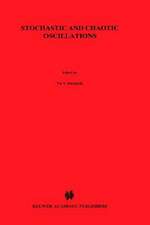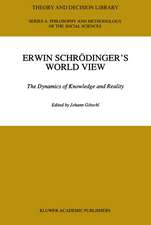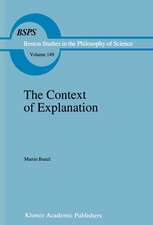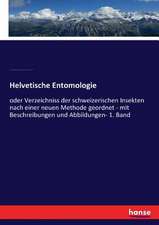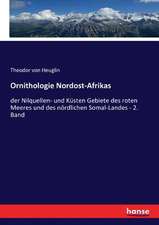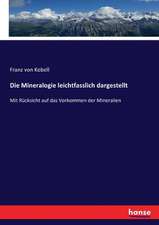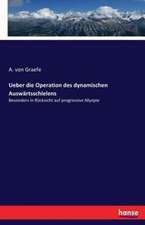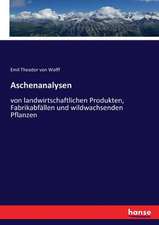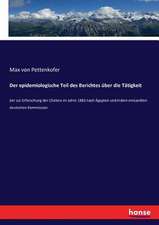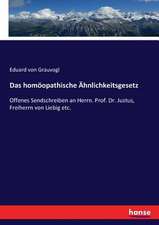Student Misconceptions and Errors in Physics and Mathematics: Exploring Data from TIMSS and TIMSS Advanced: IEA Research for Education, cartea 9
Autor Teresa Neidorf, Alka Arora, Ebru Erberber, Yemurai Tsokodayi, Thanh Maien Limba Engleză Hardback – 5 noi 2019
The report focuses on students’ understandings related to gravitational force in physics and linear equations in mathematics. It identifies some specific misconceptions, errors, and misunderstandings demonstrated by the TIMSS Advanced grade 12 students for these core concepts, and shows how these can be traced back to poor foundational development of these concepts in earlier grades. Patterns in misconceptions and misunderstandings are reportedby grade, country, and gender. In addition, specific misconceptions and misunderstandings are tracked over time, using trend items administered in multiple assessment cycles. The study and associated methodology may enable education systems to help identify specific needs in the curriculum, improve inform instruction across grades and also raise possibilities for future TIMSS assessment design and reporting that may provide more diagnostic outcomes.
| Toate formatele și edițiile | Preț | Express |
|---|---|---|
| Paperback (1) | 381.21 lei 43-57 zile | |
| Springer International Publishing – 11 sep 2020 | 381.21 lei 43-57 zile | |
| Hardback (1) | 421.72 lei 22-36 zile | |
| Springer International Publishing – 5 noi 2019 | 421.72 lei 22-36 zile |
Din seria IEA Research for Education
-
 Preț: 361.07 lei
Preț: 361.07 lei -
 Preț: 417.90 lei
Preț: 417.90 lei -
 Preț: 362.82 lei
Preț: 362.82 lei -
 Preț: 348.00 lei
Preț: 348.00 lei -
 Preț: 351.88 lei
Preț: 351.88 lei -
 Preț: 291.52 lei
Preț: 291.52 lei -
 Preț: 369.80 lei
Preț: 369.80 lei -
 Preț: 420.02 lei
Preț: 420.02 lei -
 Preț: 360.64 lei
Preț: 360.64 lei -
 Preț: 360.64 lei
Preț: 360.64 lei -
 Preț: 367.70 lei
Preț: 367.70 lei -
 Preț: 360.34 lei
Preț: 360.34 lei - 16%
 Preț: 299.52 lei
Preț: 299.52 lei
Preț: 421.72 lei
Nou
Puncte Express: 633
Preț estimativ în valută:
80.72€ • 87.71$ • 67.85£
80.72€ • 87.71$ • 67.85£
Carte disponibilă
Livrare economică 31 martie-14 aprilie
Preluare comenzi: 021 569.72.76
Specificații
ISBN-13: 9783030301873
ISBN-10: 3030301877
Pagini: 165
Ilustrații: IX, 165 p. 99 illus., 1 illus. in color.
Dimensiuni: 155 x 235 mm
Greutate: 0.43 kg
Ediția:1st ed. 2020
Editura: Springer International Publishing
Colecția Springer
Seria IEA Research for Education
Locul publicării:Cham, Switzerland
ISBN-10: 3030301877
Pagini: 165
Ilustrații: IX, 165 p. 99 illus., 1 illus. in color.
Dimensiuni: 155 x 235 mm
Greutate: 0.43 kg
Ediția:1st ed. 2020
Editura: Springer International Publishing
Colecția Springer
Seria IEA Research for Education
Locul publicării:Cham, Switzerland
Cuprins
1. An Introduction to Student Misconceptions and Errors in Physics and Mathematics.-2. Review of Research into Misconceptions and Misunderstandings in Physics and Mathematics.- 3.Methodology Used to Analyze Student Misconceptions, Errors, and Misunderstandings in TIMSS.- 4. Results for Student Misconceptions, Errors, and Misunderstandings in Physics and Mathematics.- 5. Conclusions About Using TIMSS and TIMSS Advanced Data to Explore Student Misconceptions, Errors, and Misunderstandings in Physics and Mathematics.- 6. Technical Documentation and Syntax.
Textul de pe ultima copertă
This open access report explores the nature and extent of students’ misconceptions and misunderstandings related to core concepts in physics and mathematics and physics across grades four, eight and 12. Twenty years of data from the IEA’s Trends in International Mathematics and Science Study (TIMSS) and TIMSS Advanced assessments are analyzed, specifically for five countries (Italy, Norway, Russian Federation, Slovenia, and the United States) who participated in all or almost all TIMSS and TIMSS Advanced assessments between 1995 and 2015.
The report focuses on students’ understandings related to gravitational force in physics and linear equations in mathematics. It identifies some specific misconceptions, errors, and misunderstandings demonstrated by the TIMSS Advanced grade 12 students for these core concepts, and shows how these can be traced back to poor foundational development of these concepts in earlier grades. Patterns in misconceptions and misunderstandingsare reported by grade, country, and gender. In addition, specific misconceptions and misunderstandings are tracked over time, using trend items administered in multiple assessment cycles.
The study and associated methodology may enable education systems to help identify specific needs in the curriculum, improve inform instruction across grades and also raise possibilities for future TIMSS assessment design and reporting that may provide more diagnostic outcomes.
Caracteristici
Enables researchers and policymakers to track student performance in mathematics and physics over time at three grade levels Provides in-depth information about students' level of understanding and misconceptions across a range of core concepts Identifies common student misconceptions and misunderstandings, enabling policymakers to target areas for curriculum improvement Enables teachers to plan for and provide additional critical support to their students on common misconceptions or errors in mathematics and physics



